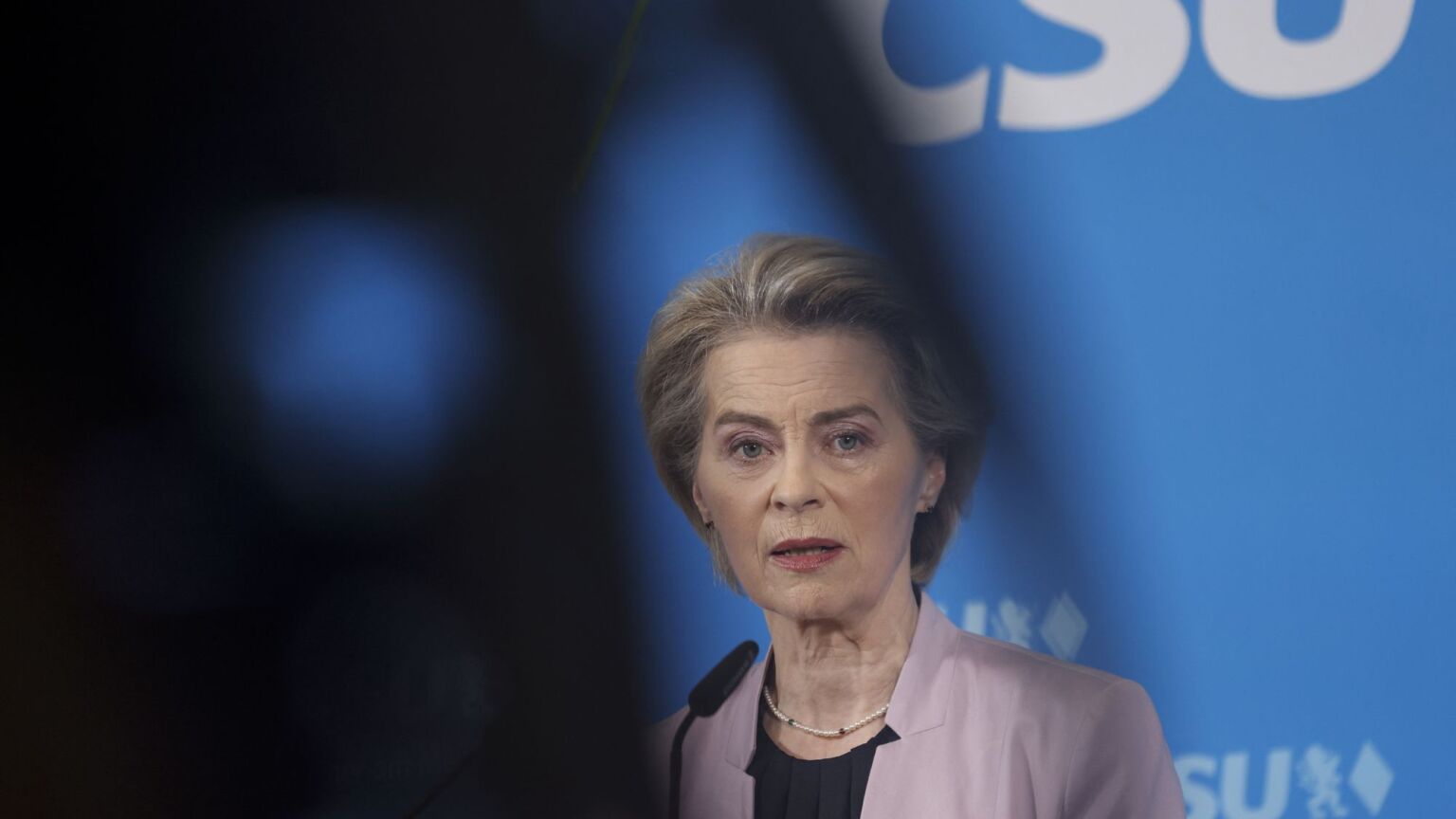The EU’s holiday from history is over
Trump's Ukraine plan has shone an unforgiving light on Europe’s dependence on America.

Want to read spiked ad-free? Become a spiked supporter.
After much speculation, US president Donald Trump has finally opened the negotiations that he promised would end the war in Ukraine. Following a phone call between Trump and Russian president Vladimir Putin, and a presentation in Brussels by US defence secretary Pete Hegseth, it’s clear that the US expects Ukraine to make significant concessions, at least by the standards of previous Western rhetoric. There will be no NATO membership, no US troops to keep the peace in Ukraine and no return to Ukraine’s pre-2014 borders. Pointedly, the US is also insisting that Ukraine’s (and Europe’s) security will now be a European problem.
The reaction from Western commentators to these initial US plans has been predictable. They claim that Trump is selling Ukraine down the river. But that misses the bigger picture. The key problem for Ukraine is that it has been fighting a war without any future security guarantee – a guarantee its nominal partners have long promised they would provide, while never actually doing so.
Indeed, the US and its European allies have made lots of noise about supporting and defending Ukrainian sovereignty throughout the conflict. Yet they have shown no genuine intention to provide any real, NATO-style promise of protection – something which would consider a future attack against Ukraine as an attack against all its allies.
Trump’s proposal, coupled with Hegseth’s remarks, attempts to put an end to Western powers’ interminable dance with Ukraine. As Hegseth bluntly said of Ukraine’s future security arrangements, ‘this must not be Minsk 3.0’ – a reference to the ineffective 2014-15 Franco-German ‘Minsk agreements’ that tried and failed to put a stop to Russia’s war in the Donbass in eastern Ukraine. European leaders have always been happy to wring their hands about the Russian threat while shirking the harder task of working out a durable position on Ukraine’s security.
That’s why Ukraine is trapped. On one side, it faces Putin’s neo-imperial war machine. On the other, there is a self-absorbed Europe that has been on a long vacation from history, paid for by US power. Hovering above it all is the Trump administration, tired of America being asked to play the role of a global babysitter.
The US peace plan lacks detail, and seems certain to sell Kyiv short. Any loss of Ukrainian territory to its aggressor would be a tragedy. But for all the plan’s many faults, it does finally expose the hollowness of Western politicians’ talk of solidarity with Ukraine.
Indeed, for all his bluster, Trump is latching on to a truth that many in Washington and Brussels ignore. Namely, that Europe is the main stakeholder in a stable eastern frontier, yet it refuses to act like it. The EU talks up its aspirations for ‘strategic autonomy’, but it also wants America there to solve the big geopolitical questions on its behalf.
This is not a new problem. Ever since the collapse of the Soviet Union, Europe has lived in a security bubble sustained by US power. This has allowed it to hold on to the vain belief that an integrated EU economy would automatically produce peace and harmony. When confronted by a real threat on its borders, Europe looks to Washington for help.
Trump is trying to change this relationship. He is insisting that European countries play a greater role on their own continent. On one level, this reasoning is hard to fault. Yet at the same time, the US does not want Europe to be completely autonomous. America wouldn’t be calling for Europe to take control of its own affairs if it thought this might result in a political and military course contrary to US interests. (The Trump administration is also insisting that its NATO allies buy more American arms and energy, for one thing.)
Not that the White House will be unduly worried about Europe striking out on its own. Far from being a unified, self-confident actor, capable of shaping its destiny, the EU is divided and proving all too willing to let the US call the shots. With European leaders reluctant to face higher defence expenditures or to grapple with the messiness of geopolitics, it is little wonder they cling to the fantasy that the war in Ukraine can be resolved by diplomatic band-aids like the ill-fated Minsk process.
Facing territorial concessions and an uncertain future, Ukraine is now left to pay the price of Western and European weakness. The question remains what the true conditions of Russia’s ‘peace’ will be, and whether Ukraine or anyone else will be able to stomach them.
Either way, Trump has firmly put an end to European illusions.
Jacob Reynolds is a writer based in London and Brussels.
Who funds spiked? You do
We are funded by you. And in this era of cancel culture and advertiser boycotts, we rely on your donations more than ever. Seventy per cent of our revenue comes from our readers’ donations – the vast majority giving just £5 per month. If you make a regular donation – of £5 a month or £50 a year – you can become a and enjoy:
–Ad-free reading
–Exclusive events
–Access to our comments section
It’s the best way to keep spiked going – and growing. Thank you!








Comments
Want to join the conversation?
Only spiked supporters and patrons, who donate regularly to us, can comment on our articles.